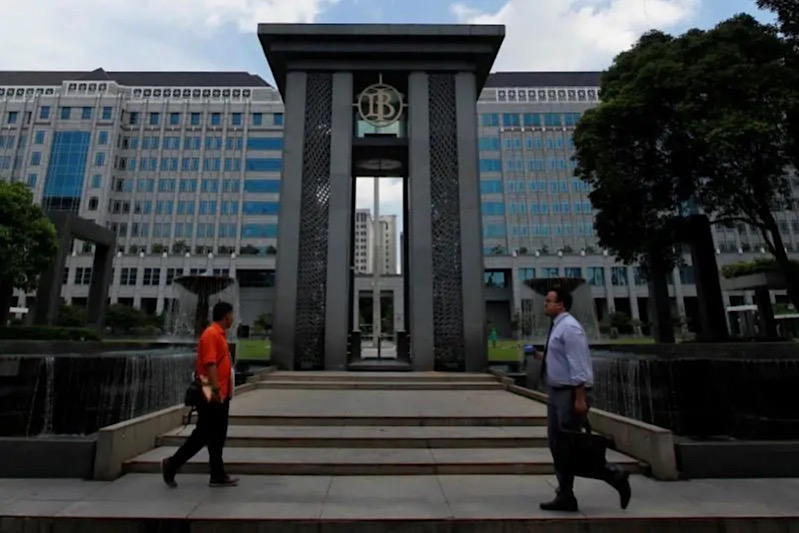Billions from Jakarta to banks, experts warn of inflation and speculation risk
The government, through the Ministry of Finance, has allocated more than billion to five credit institutions. The funds will be provided through a ‘demand deposit’ scheme and will also apply to Islamic finance. Scepticism and doubts about the real effectiveness, the logic of the measure and the real impact on the economy.
Jakarta (AsiaNews) - The Indonesian government, through the Ministry of Finance, has allocated state funds totalling 200 trillion rupees (£12.2 billion) to five major credit institutions in the country.
A directive issued under Ministerial Decree (Kmk) No. 276/25 aims to strengthen bank liquidity and stimulate economic growth, although there is no shortage of criticism from experts and economists, who argue that the move risks raising inflation without any real benefits.
The minister, Purbaya Yudhi Sadewa, confirmed the disbursement of the money on 12 September through the “demand deposit” system, covering both conventional funds and Islamic finance, for a period of six months, which may be extended without an auction mechanism.
The money was allocated as follows: Bank Rakyat Indonesia (BRI), 55 trillion; Bank Mandiri, 55 trillion; Bank Negara Indonesia (BNI), 55 trillion; Bank Tabungan Negara (BTN), 25 trillion; Bank Syariah Indonesia (BSI), 10 trillion. With an interest rate of 80.476% of the BI rate (currently 5%), the government will receive a return of approximately 4.02% per annum.
The placement of funds cannot be used to purchase government securities (SBN). In addition, beneficiary banks are required to submit monthly reports to the Directorate General of the Treasury within the Ministry of Finance.
Risk mitigation is ensured by a “direct debit” mechanism on the institutions' mandatory reserves (GWM) at Bank Indonesia, should they fail to return the funds. Market analysis, recommendations from the relevant authorities and internal government supervision are also taken into account.
In this initial phase, the market has welcomed the government's proposal. Rully Arya Wisnubroto, head of research and chief economist at Mirae Asset, explained that it will “accelerate” economic recovery in the third and fourth quarters of 2025 through “increased bank intermediation and an increase in lending to the real sector”.
Similarly, Oktavianus Audi, vice president of Equity Retail at Kiwoom Sekuritas Indonesia, noted that it could have three main effects: increased liquidity, signs of inflation, and productive credit growth.
However, there is no shortage of critical voices who doubt the real effectiveness of the measure, which risks exacerbating the critical issues. In a letter to AsiaNews, Wisnu Rosariastoko, a private bank operator in Jakarta, explains that the Finance Ministry's decision, touted as a stimulus package to revive economic growth, has in fact been met with scepticism by economists and experts. There are doubts about its real effectiveness, the logic behind the measure and its potential impact on the economy.
The most surprising aspect of this policy is the restriction imposed on commercial banks, prohibiting them from using deposited funds to purchase government securities: SBN or SBI. This restriction defies logic, as government securities are considered one of the safest and most liquid investment options for banks.
By preventing banks from investing in these securities, the government is essentially forcing them to hold unused liquidity or explore riskier investment options.
This restriction can lead to several undesirable consequences, including: reduced lending to the private sector; increased risk-taking; inefficient allocation of resources. There are also concerns that this policy will create unused money, which can further fuel inflation if not managed properly.
With banks holding excess liquidity, they may be tempted to lend more, thereby strengthening inflationary pressures, at least potentially.
Furthermore, the restriction on investment in government bonds could lead to a misallocation of resources, as banks may be forced to hold liquidity that would actually be put to more profitable use by injecting it into the real economy.
Finally, the potential risks associated with this approach could include inflationary pressures and speculative bubbles. The policy focus on injecting liquidity into the banking sector, without addressing the underlying structural problems, provides only temporary relief rather than a sustainable long-term solution.







.png)










